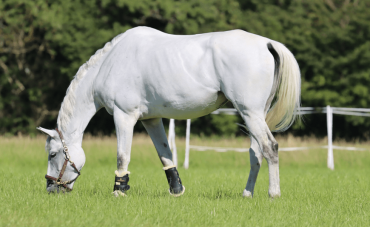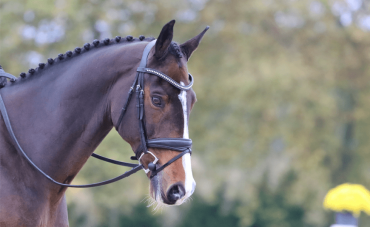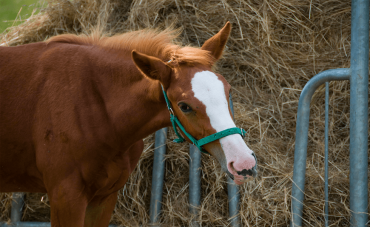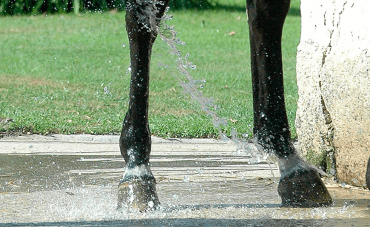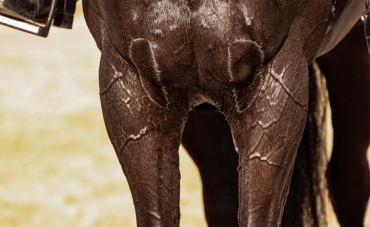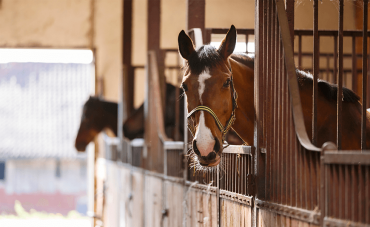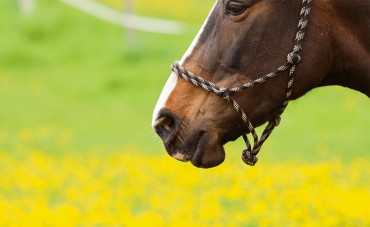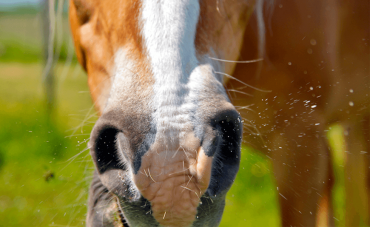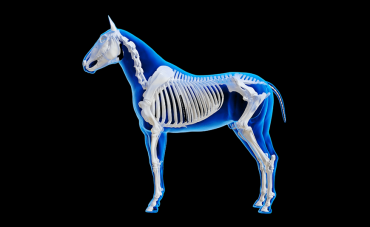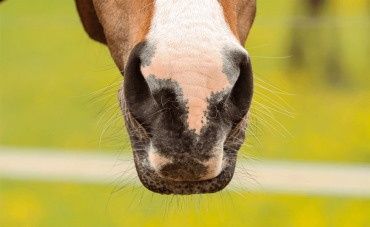What is it?
Stress is the consequence of a change in the horse’s environment that he perceives as negative and that he hasn’t been able to anticipate.
Cause
Stress is the consequence of a change in the horse’s environment that he perceives as negative and that he hasn’t been able to anticipate. After having attempted to understand the situation, the horse will try to control it and accept it. If he is not able to do this, his brain will start to interpret the situation as an aggression: this is stress.
The causes of stress are multiple: boredom, transport, pain, feed changes, changes in stable environment, extreme climate changes…
Consequence
When a horse is stressed, his brain starts sending mixed signals that can disturb normal body function. The consequences can be particularly notable on the autonomous nervous system which regulates essential roles such as respiration and circulation.
The sympathetic activation of the nervous system will increase the heart rate and respiratory rate and disrupt normal digestive motility which can lead to abdominal pain. Other areas of the brain can also be affected by stress and cause abnormal behaviours called stereotypies.
Symptoms
In the horse, stress can manifest itself in different manners such as aggressivity or inversely listless periods where he shows complete disinterest. Other examples are:
-
Abnormal eating behaviours that lead him to eat his bedding, his faeces, wood,…
-
Stereotypes: crib-biting, licking of his manger, windsucking, teeth grinding, licking his lips, weaving
-
Stress also has consequences on the organism: it can lead to gastric ulcer formation for example, colic episodes, immunocompromise…
Tests
The veterinary visit encompasses a routine examination of the horse. This allows for apprehension of his general demeanour, his vital parameters and his weight.
Routine examinations
The veterinary visit encompasses a routine examination of the horse. This allows for apprehension of his general demeanour, his vital parameters and his weight. The vet will then try and identify the origin of the symptoms by performing other diagnostic tests (abdominal ultrasound, blood test, endoscopy,…). Finally, to confirm stress as the inciting cause, he will also question the owner thoroughly to establish what might be problematic in the horse’s environment.
Complementary examinations
Further diagnostic tests that may be carried out by the vet will allow him to rule out other problems or to identify lesions that stress may have caused. For example:
-
An ultrasound to identify any abdominal problems.
-
An endoscopy to examine the stomach and identify any gastric ulcers.
Treatments
If the horse feels at ease in his environment he is less likely to develop stress. There are simple measures that can be applied.
Basic principles to follow
If the horse feels at ease in his environment he is less likely to develop stress. There are simple measures that can be applied. For example:
-
Decrease transportation frequency or make it as agreeable as possible.
-
Turn the horse out frequently in a paddock.
-
Keep the horse protected from extreme cold or heat.
-
Keep the horse entertained by providing him with a companion or a toy. A hay net can also prolong his eating time and help with this.
Treatment principles
It is not possible to provide horses with long-term anxiolytic treatments. Tranquilisers are available but should not be administered without veterinary recommendation and are not advisable over prolonged periods of time due to their potential secondary effects.
It is however possible to help the stressed horse by providing him with nutritional support for his increased needs. Magnesium and tryptophan play a role in neurotransmission and are but 2 examples.
Equine maternal pheromones (molecules secreted by a mare aimed at appeasing her foal) have also been used successfully in situations that can be stressful to the horse. They are applied to the nostrils and allow the horse to ‘breathe in’ the message that reassures him.
Do not hesitate to seek veterinary advice.

